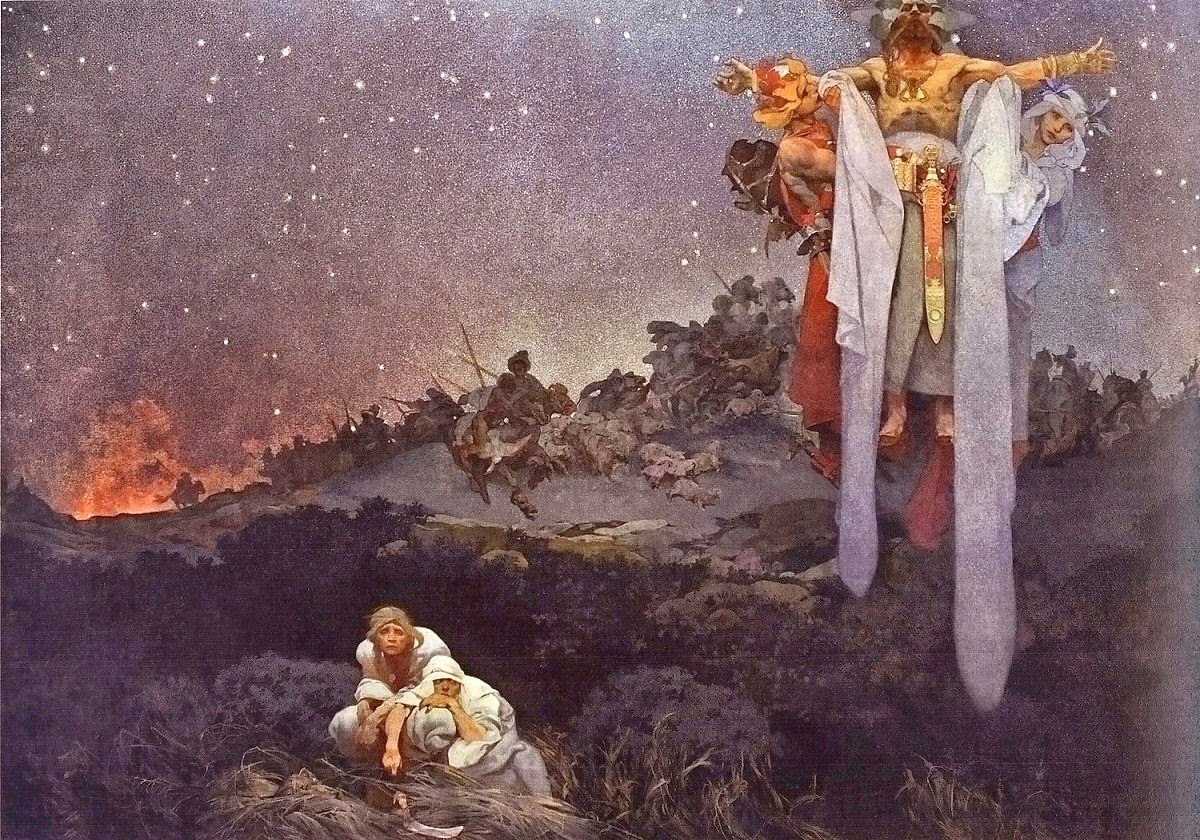Detective Cohle had the right of it.
Time is indeed a flat circle.
And lest you think I am (again) ragging
on the forum-warriors who Vahalla-style arise to fight the same
butthurt-battles, I am aiming closer to home.
Mulling over last night's Hill Cantons
game, one of those strangely enjoyable “town” sessions that just
meanders around, my brain went back to one of the big-ticket PC and
high-ranking NPC goals in the campaign: apotheosis.
Hmph.
Let's break with the quantum skein
of the Norns and take it a different direction. Let's talk about the
specifics on how one becomes a god.
Let's take that little tucked-away and sadly dry as sand section on the subject in
the AD&D's Deities and Demigods book (page 11) as a
baseline. In that version to become a god you must meet four
criteria:
1. the character has to have surpassed
the average level of all
NPCs in the campaign (being something like 25-30th level
in one that 15th is the average).
2. His ability scores have to be
magically raised to beyond human levels on par with the
vaguely-defined “lesser demigods.”
3. He must have sincere followers.
4. He must have been a faithful true
follower of his patron deity and alignment.
I can live with one as an objective
marker of personal power (though the rather low power range of NPCs
in the Hill Cantons sets the bar around 11-13th level).
Point two to me seems both a bit dull and munchkin like. Four is just
a terrible fit for the tone of my campaign. In fact, I am not even
sure who many of the PCs worship as a patron god (if any) and
alignment is more about the vague cosmic team you identify with than
the codified belief system of AD&D.
Three I like the best as it points to
something I believe is more important than just accumulating enough
personal mojo, it's more about an open-ended goal that can be played
out in the course of the game. It's about the doing. It also
sets out the rather interesting gameable and well rooted literary
idea that deities power fluctuates with the size and deeds of their
following.
Coming to the point here's my rough idea of what you need to do to become a godling in the Hill
Cantons:
1. The character has to be personally
powerful (at least 12th level or whatever the class level
max is) and known by repute to be powerful.
2. The player has to be able to push
their way into the cosmology of the setting. Whether that's
stealing/usurping the portfolio of an existing (and perhaps
downwardly mobile) god, destroying or consuming their life force,
recreating a lost mythic pattern, starting a state cult, being
absorbed by a godhead, creating a whole new religious framework, or
whatever. There just has to be someway of fitting into it all. In
the Hill Cantons where my cosmology is funkier and more hidden than
the D&D multiverse, it also means that the player has figured out
by the hard work of play at least some of what the hell is going on
behind the cosmological mysteries.
3. You must pull around you a real
sincere group of followers by hook or crook (the latter seems popular
to the party right now). Hoodwink them, dazzle them, whatever but you
have to a sizeable group of NPCs believing in your dance.
Quantifiable? Dunno.
4. Those followers must have some
infrastructure and organization. You have to have temples, shrines,
groves, clergy and accountants all the outward trappings of a cult.
5. Finally you have to accomplished
several Herculean “great acts” in this world and the others. I
like the idea that it the PC has to have successfully undertaken a
truly epic mythopoeic “heroquest” (or two, I do so love
Glorantha). Fortunately Barry Blatt has already laid out a
lovely scheme for in-game heroquesting (in a pointcrawl format no less) that may be portable
to a D&D framework.
6. Importantly it means the player is
ready to hang it up at least for that character. It means retiring in
the ultimate End Game.
Still want to be a golden god?












